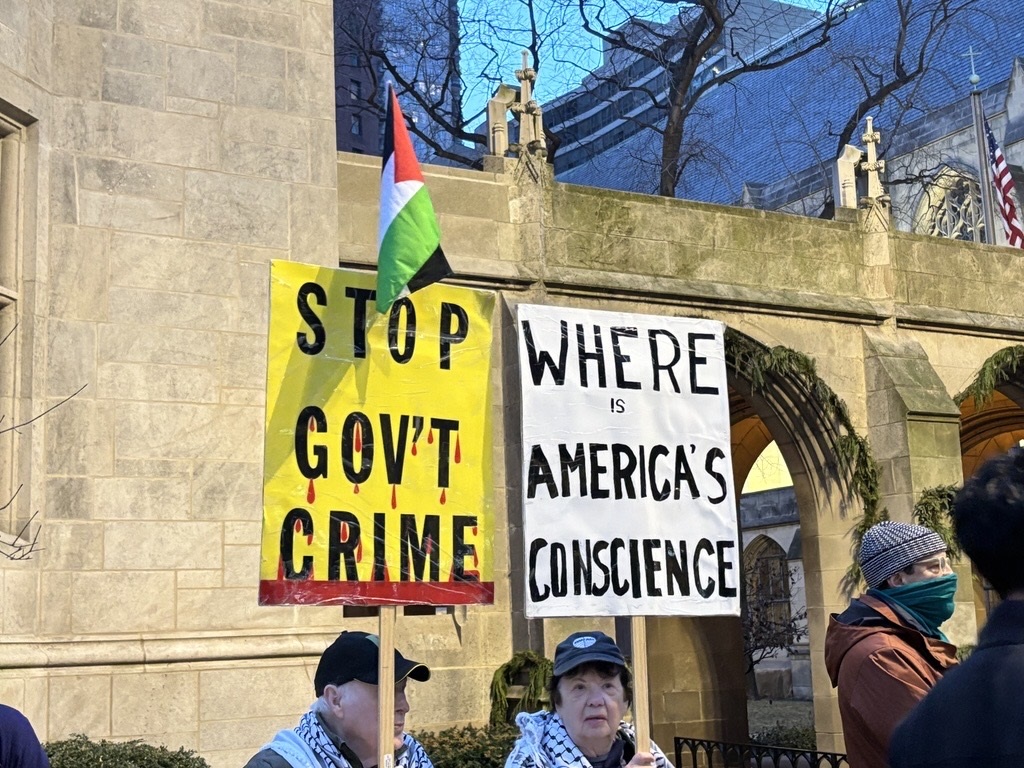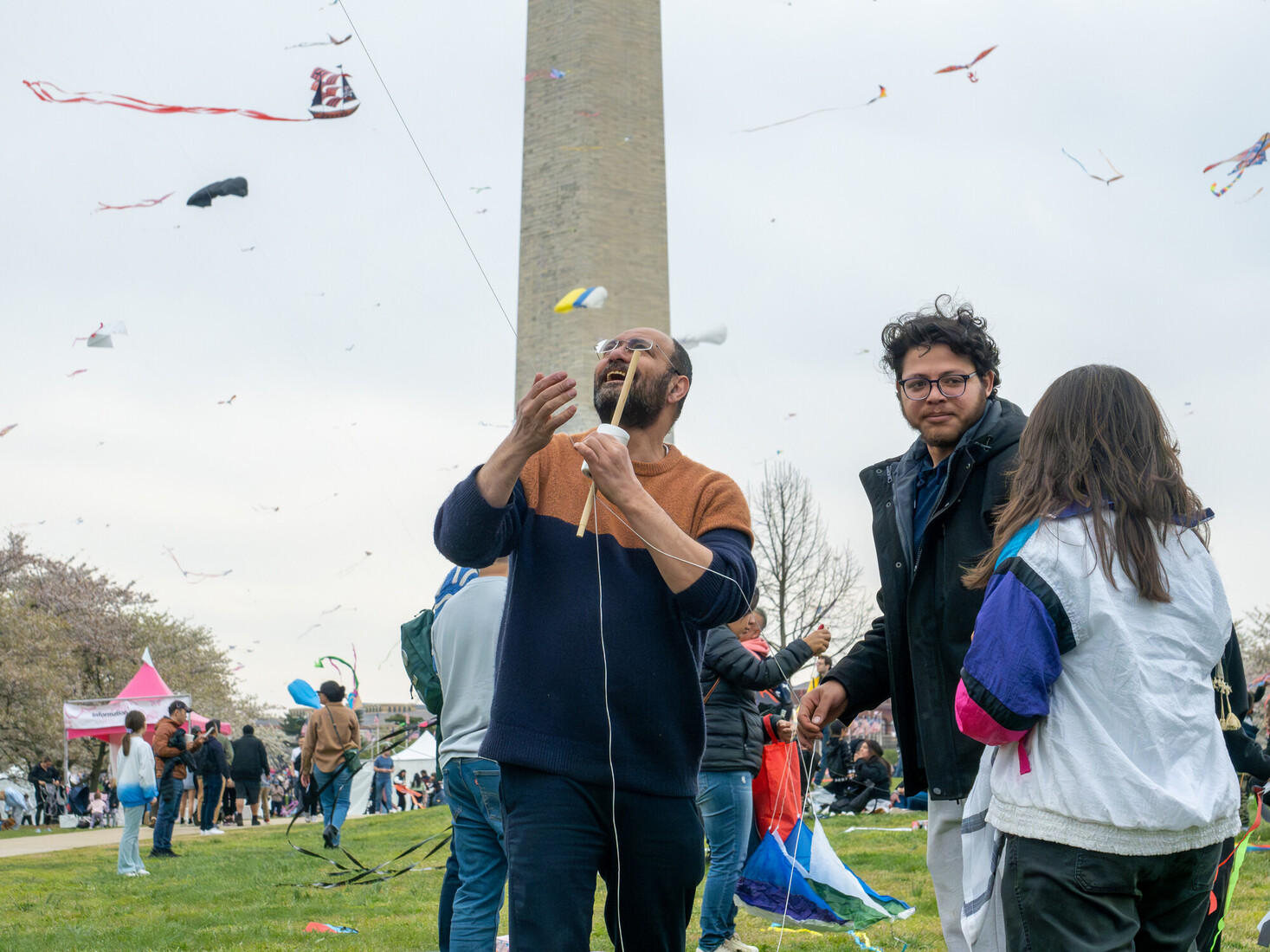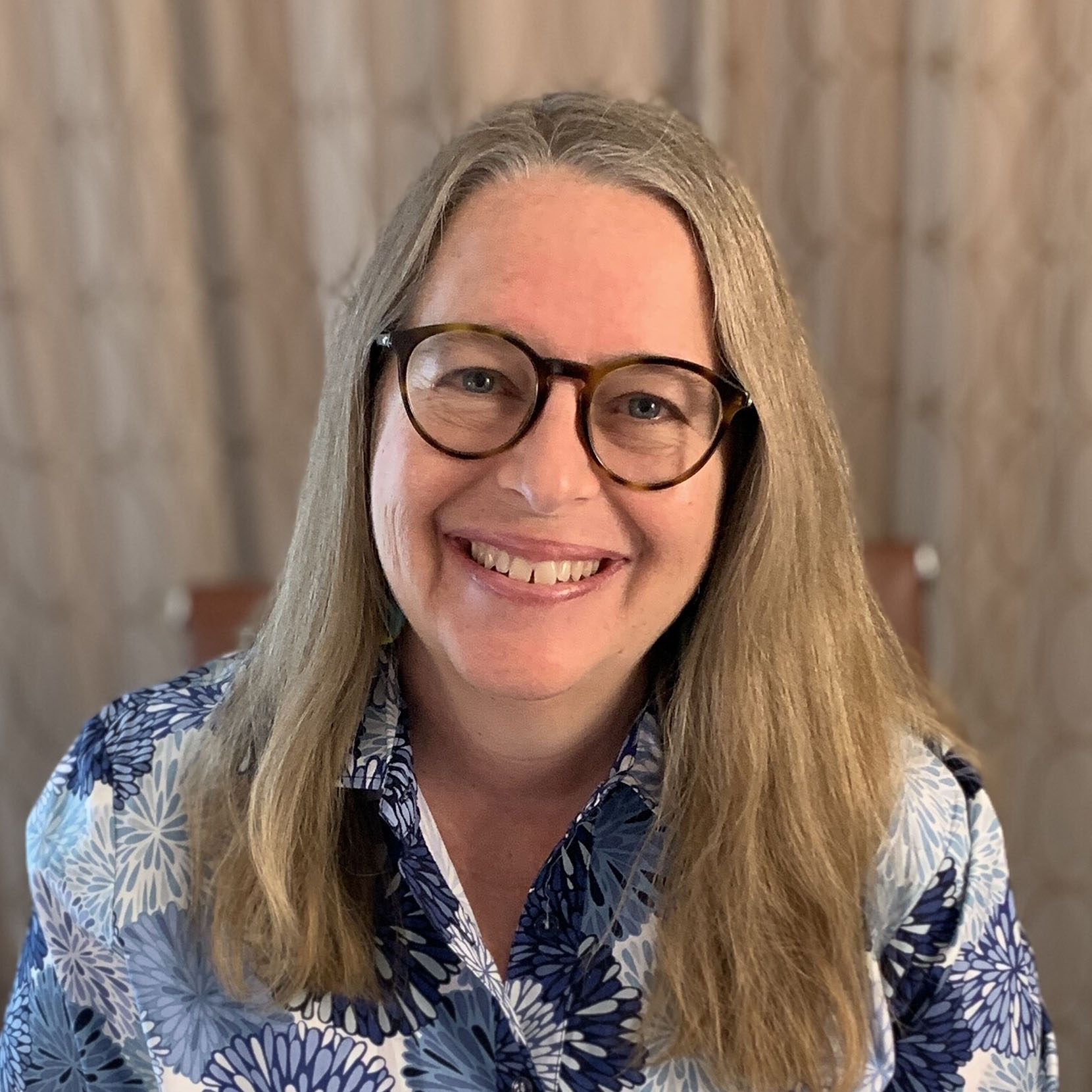
Vigil in Chicago. Photo: Jennifer Bing/AFSC
This article is based on remarks that Jennifer delivered at a Dec. 28 vigil in Chicago, which was organized by Mennonite Action/Chicago and Christians for a Ceasefire.
I’ve been thinking a lot this week about the poem written by my friend, and mentor to many in Gaza, Professor Refaat Alareer. Refaat was killed by Israel in a targeted airstrike last December in Gaza. The last line of Professor Refaat’s now famous poem, is “If I must die, let it bring hope, let it be a story.”
In Gaza this year, over 45,000 people have been killed by Israel with U.S. complicity, and I wonder, what story will we tell of 2024? And how we will take action in 2025?
We have watched Palestinians on the move
Cars loaded with families moving south
People piled onto donkey carts
as fuel is limited
Without paved roads
On foot, they drag their belongings,
heavy backpacks on children
Slippers worn from walking
Sandals that no longer fit
Feet cold from the rains
We have watched people standing in lines
for bread, for food
for water as children mind the plastic jugs
People standing in line for the latrine, shared by dozens of families
Now housed in elementary schools
Where even play yards are not safe from US-made rockets
We have watched children
Standing with empty bowls at makeshift open air soup kitchens,
Crying from amputations without pain killers,
Roaming in search of a familiar face and marked
“Wounded child, no surviving family” (WCNSF)
Children screaming for a parent’s embrace
Taking a last breath when unplugged from incubators
We have watched hands reaching out from the rubble
dug out from beneath collapsed buildings by rescue teams
Children brought to hospitals where they shake from fear
Only to be sent back into a newly designated “safe zone”
that provides no safety.
We have seen the blindfolded men,
stripped of their clothing, kneeling
Or forced to march to detention camps,
only to be further humiliated, tortured and abused.
We have seen the Shrouds. White sheets. Mass graves.
Bodies eaten by wild dogs and cats.
Parents wailing,
Furtively kissing their loved ones goodbye,
Wishing death took them instead
Doctors and medics pleading for the lives of the sick and injured
who fill hospital rooms, floors, and hallways full of blood.
We have seen the destruction.
Drones humming above, sometimes mimicking a baby’s cry
Tanks crushing homes, greenhouses, solar panels, olive trees
Bombs destroying mosques, hospitals, universities, markets
Quadcopters and AI weapons killing and killing and killing.
This horror is part of the tale of 2024.
But I believe Refaat would want us also to remember another part of Gaza’s story:
people’s steadfastness.

Kites for Gaza day of action in Washington, D.C. Photo: Nathaniel Doubleday/AFSC
Palestinians continue to tell the stories of their homeland
Make music with damaged instruments
Bake bread and share it with neighbors
Carry water to the elderly, and comfort the sick
Celebrate the newlyweds, bring good wishes to the newborns
Create warm clothing from blankets
Set up classrooms in tents
Plant seeds in the ground
String paper flowers from the tent posts
And say their prayers to God for mercy.
In Gaza, people resist to survive.
Artists create art
Dancers dance
Athletes play soccer
Kids fly kites
Swimmers surf
Writers write
Clowns generate laughter
And sunsets on the beach still bring wonder.
These many tales of Gaza in 2024 leave me wondering, what will we do, knowing these stories?
Will we continue to find ways to raise funds to feed, clothe, and shelter the 1.9 million displaced from their homes?
Will we demand safe access for medical and humanitarian aid workers to reach those who so desperately need relief?
Will we support the artists, the music makers, the many journalists who defy death and tell the story of genocide?
Will we support the organizations who provide documentation to prosecute these war crimes?
Will we call on our elected leaders to support an arms embargo?
Will we name and shame the weapon companies and their board of managers who profit from death and destruction?
Will we divest from companies like Boeing, Chevron, and Caterpillar, who profit from the genocide?
Will we have the courage to speak up about Palestine, even if it means potentially offending friends and family?
Do we have the capacity to continue to organize actions like today’s that show that American people want these atrocities to end?
May we all answer these questions with a yes. Let it bring hope.
